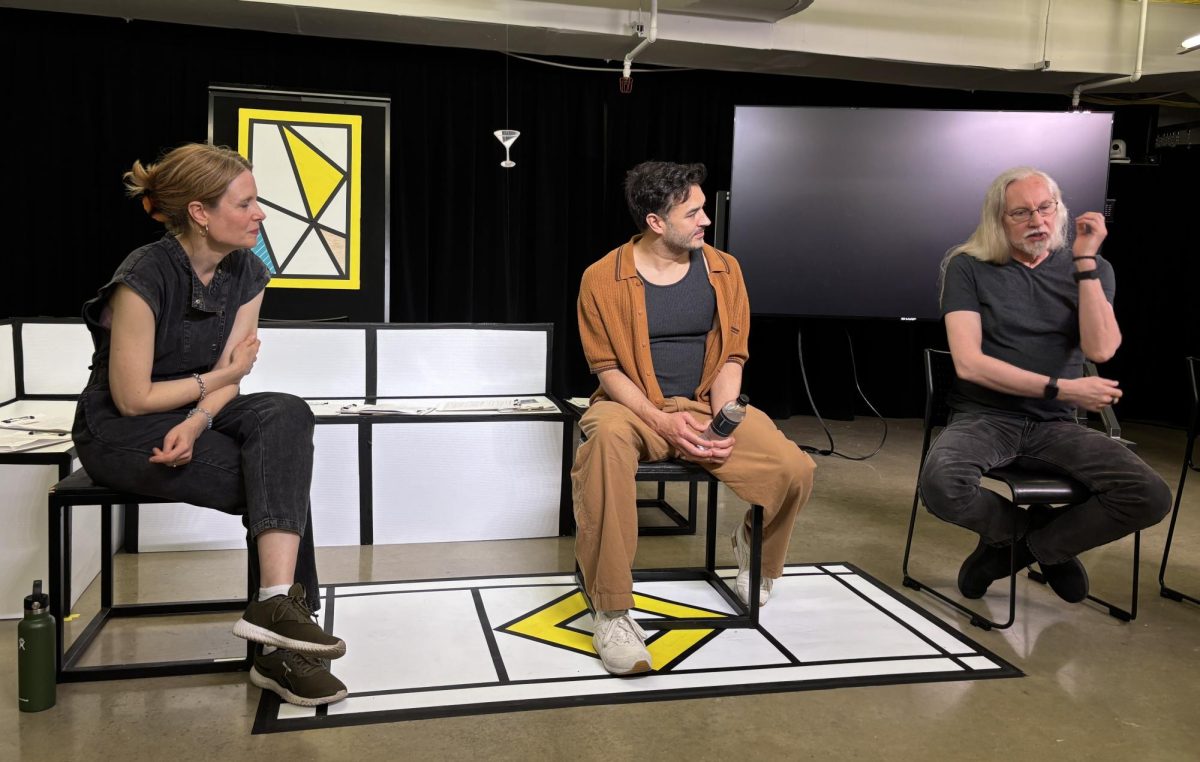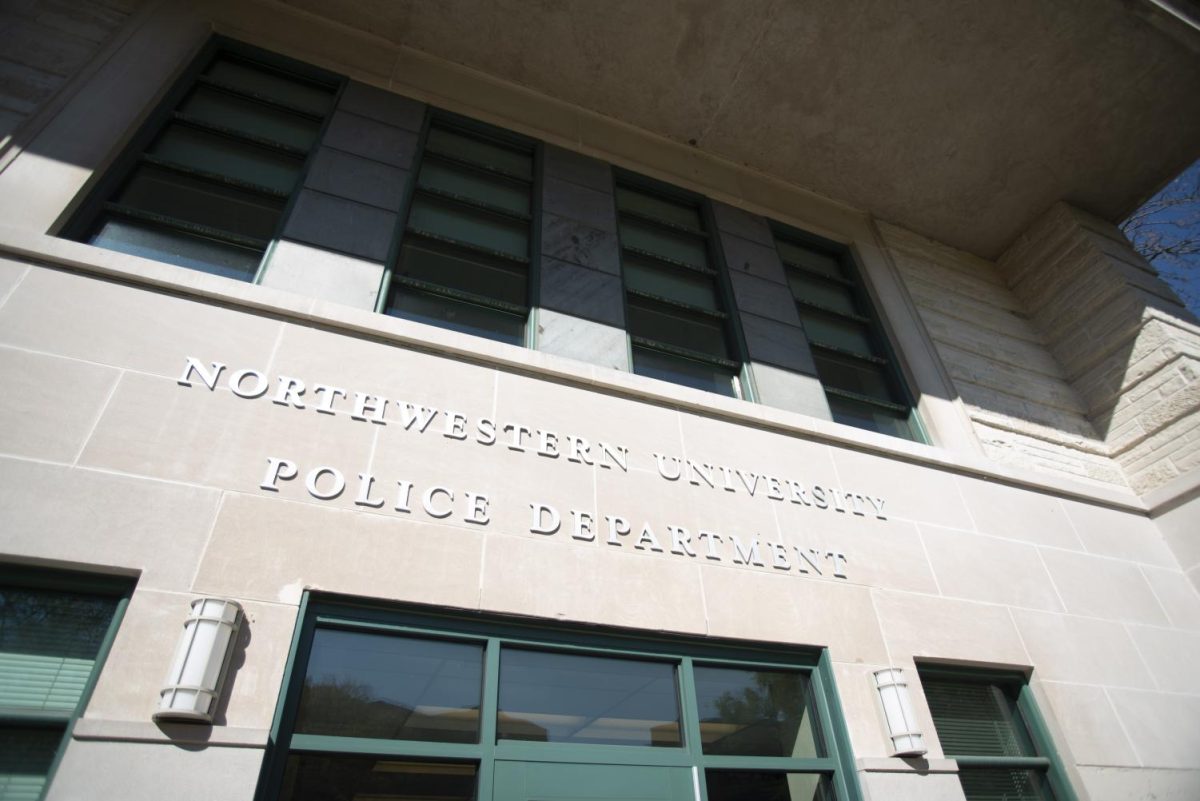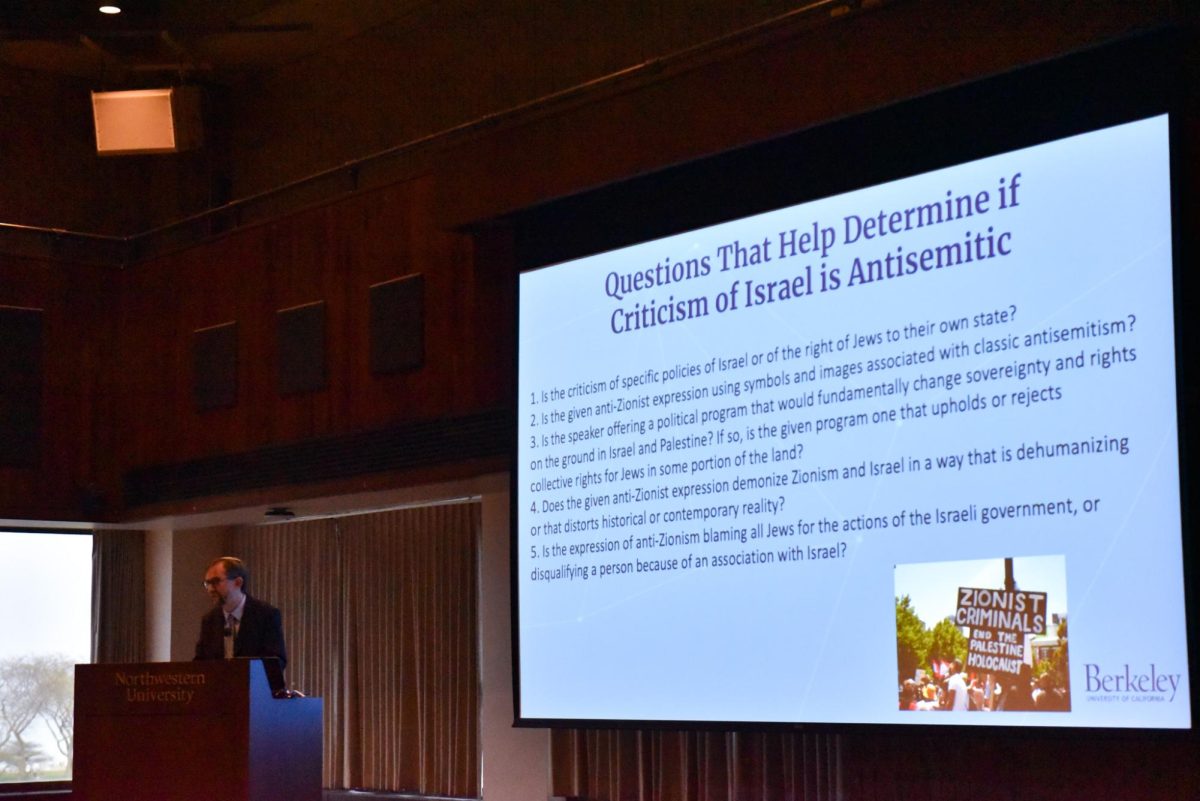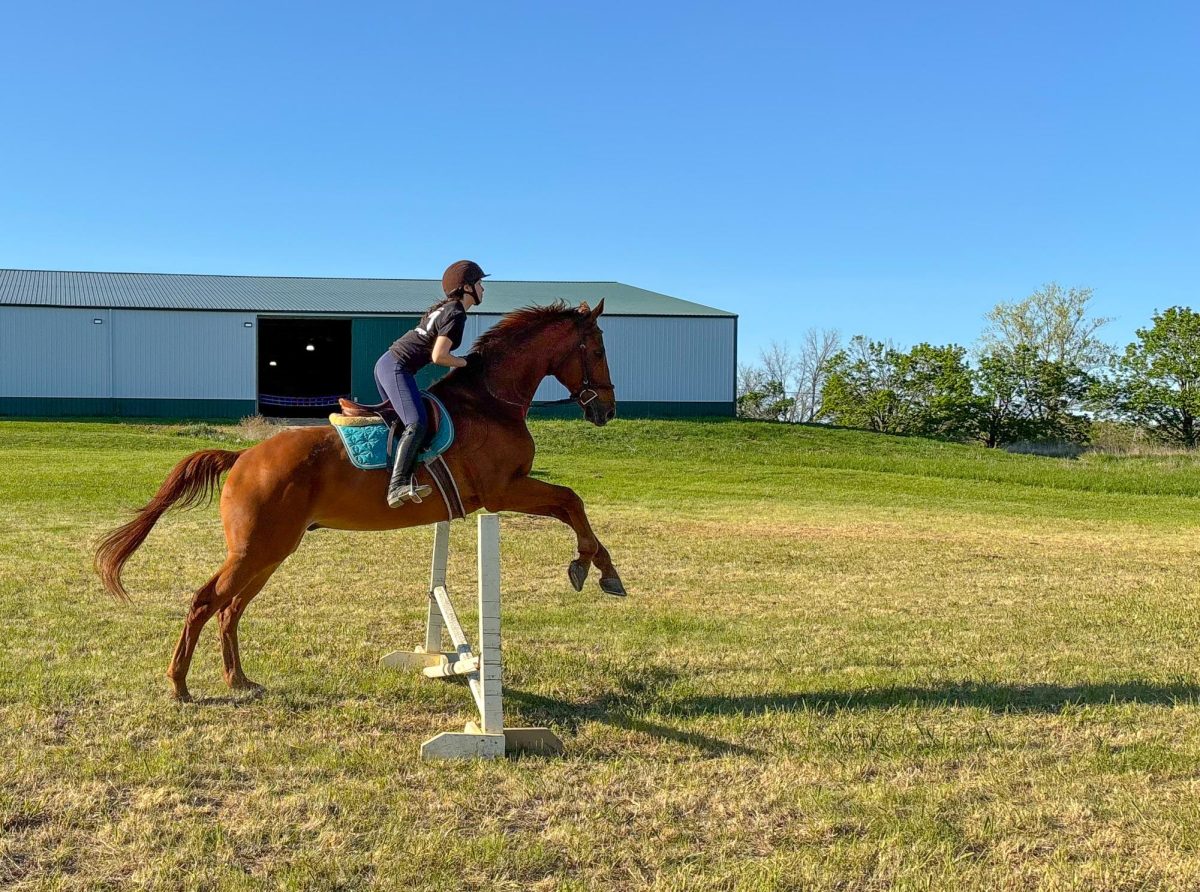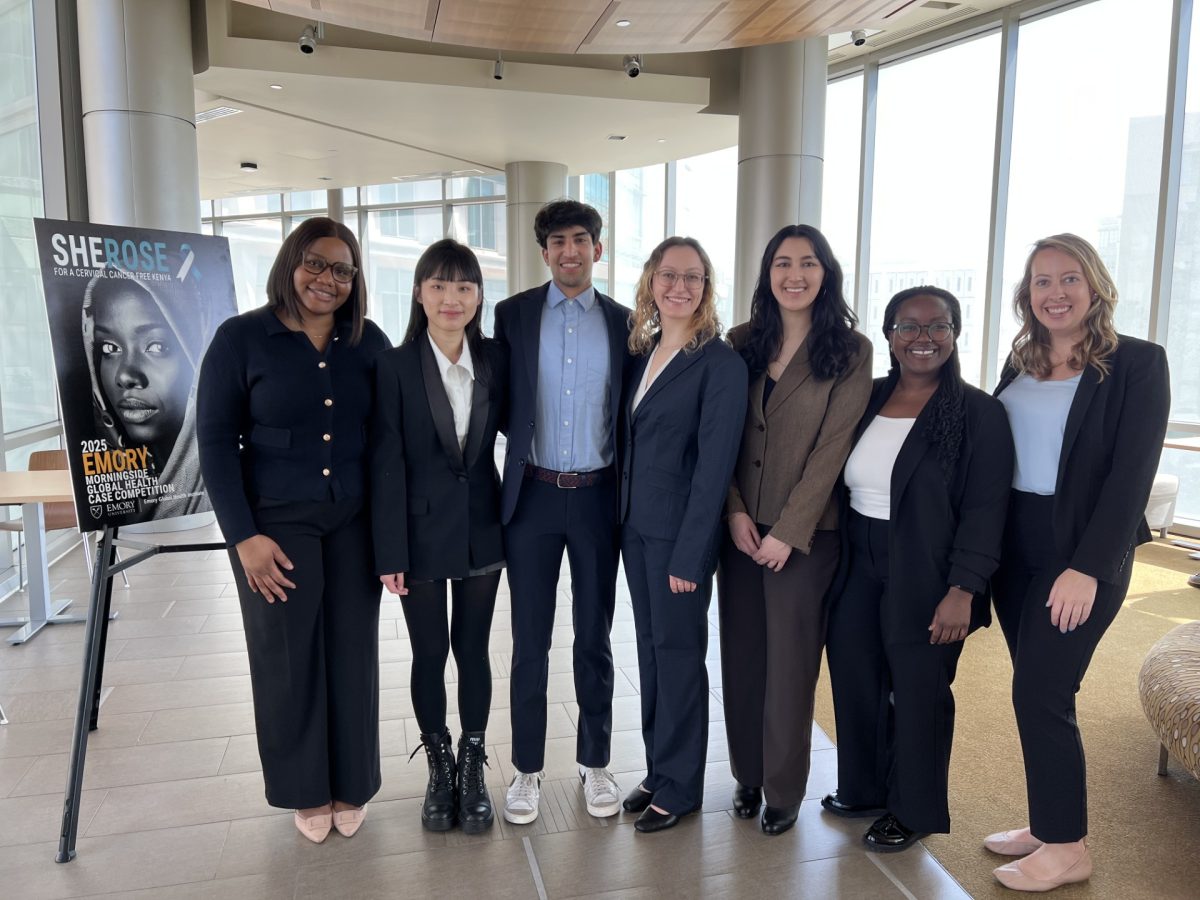Chloe Johnston (Communication ’11) performed the interactive show “Grace” at The Garage on Monday evening, encouraging students, faculty and other audience members to reflect on how technology shapes their relationships with others and themselves.
The show is named “Grace” after a character Johnston voiced in the 2005 video game Façade, which uses natural language processing to allow simulated conversations between the players and the program.
Two decades later, Johnston has not played the game herself. However, she found music on YouTube that creators made using Grace’s lines from the video game — without her permission.
She said when she did the voiceovers in 2003, she had no idea fans would use her voice from the video game for their own projects. Learning her voice had been used in new ways, and without her consent, was part of the inspiration behind “Grace.”
In addition to her own experience, Johnston’s show explored the consequences of using someone’s voice or likeness for technological development.
“I don’t think the show is negative about technology. I certainly don’t mean it to be,” Johnston said. “But I do hope it just sort of gives one pause … being mindful of the fact that we can’t ever predict the way technology evolves.”
The set was designed to replicate Grace’s apartment in the video game, from the white couch to the paintings on the wall. Six of the objects on the set — a picture of a pineapple statue, a tree, an abstract painting, a couch, a Magic 8 Ball and a hanging martini glass — correspond to different parts of the script and guide the direction of the show.
Throughout the show, Johnston called on members of the roughly 40-person audience to choose which object they wanted to hear about next.
“It’s a little destabilizing for me and it keeps me on my toes,” Johnston said. “I like it because it sort of echoes the experience of the game, which doesn’t ever have the same outcome.”
Since the audience chooses the order of the objects, and therefore, the order in which the script is presented, each performance is a little different.
Alice Boone, manager of Art + Engineering Initiatives at McCormick, has seen “Grace” several times since Johnston performed it at the Wirtz Center Chicago in October 2024 and said the changing order is her favorite part.
“Different scenes resonate in different ways because they are juxtaposed in, each time, a completely surprising way for me,” Boone said.
After the performance, Johnston, McCormick Prof. Ian Horswill and Communication Prof. Joshua Chambers-Letson discussed the intersection between technology, art and their roles in daily life.
The conversation considered how developments in artificial intelligence might affect the future of live performance, including how the technology may increase corporate ownership of creative projects or democratize access through platforms like YouTube. The panelists also responded to audience members’ fears related to the development of AI and its potential effects on human connection.
In this discussion, Horswill said it was interesting to consider “all the ways” in which Façade “has developed a life of its own” over time.
“It makes me worry about the likelihood of unanticipated negative consequences,” Horswill said.
For Boone, “Grace” reflects on how technology affects how people see themselves, their voices and each other. She said these questions, and the interdisciplinary discussion they provoke, is part of the power of theatrical performances like “Grace.”
“The theater lets us ask some of those big, human-centered questions about the meaning and the consequences and unintended consequences, the surprises that our relationships with technology bring for us,” Boone said.
Email: [email protected]
Bluesky: @aknewsom.bsky.social
Related Stories:
— Institute for Artificial Intelligence in Medicine focuses on ethical data use
— Illinois Senate passes artificial intelligence protections for artists
— TIDAL Lab creates new computer science learning technologies
